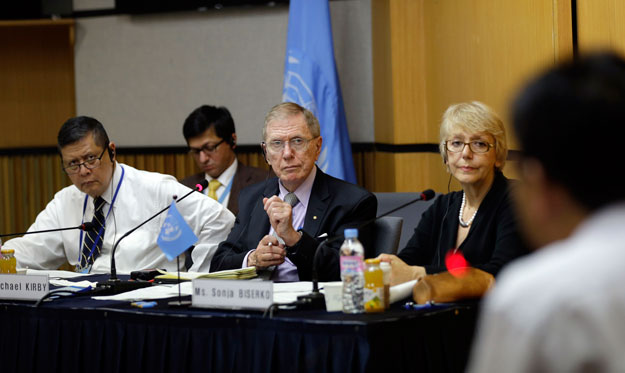If a country’s strength is its people, then Russia might be in trouble.
According to official statistics, nearly four million Russians left the country in the first three months of 2022.
“We were very afraid of being questioned at the Russian border as we heard they didn’t want to let IT specialists leave the country, so we erased the messengers on our phones,” Marina, a 25-year-old IT professional from Moscow, who recently left for Cyprus with her boyfriend, told Al Jazeera.
“But at Vnukovo airport, they didn’t ask us anything, except for the amount of cash we were carrying,” she added.
Although some had been planning to travel for work or personal reasons after COVID restrictions were relaxed, a substantial number appears to be connected with the invasion of Ukraine, sanctions or fears of conscription and martial law.
Among them are some of Russia’s best and brightest.
“In my opinion, this is a criminal adventure that occurred because in this country, all the most important decisions are made by one person completely out of touch with reality,” said 32-year-old Artur from St Petersburg, a software developer and online instructor who is now in Germany, referring to President Vladimir Putin.
In March, Sergei Plugotarenko, head of the Russian Association for Electronic Communications, a non-profit group, told a parliamentary committee that as many as 70,000 IT professionals like Marina and Artur emigrated since the start of the “special operation” in Ukraine, as the invasion is officially termed in Russia.
Many of these younger specialists are relatively well-off, tech-savvy, and are able to work remotely.

“At the start of the war, I was in a very advantageous position: working remotely with my salary paid in foreign currency, a new Schengen visa, a European vaccine and a repaired laptop,” Artur told Al Jazeera.
“At the end of February, when the war began, all this helped me a lot in terms of mobility – since I planned to go to friends in Berlin in mid-March, my suitcases were already packed, so to speak.
“The day before my departure, it was announced that our Visa and Mastercards would stop working abroad. In my case, I was lucky that most of my savings were in cryptocurrency and it was enough to take a flash drive with me to solve the issue of cashing out.”
Inna Pomorina, an economist at Bath Spa University in England, said the mass departure of skilled and educated Russians reminds her of her experiences in the fraught period after the collapse of the Soviet Union.
“It brings to mind a comparison with emigration in 1918 [during the Russian Civil War], and the 1990s,” she told Al Jazeera, “We left Russia because our salaries were not being paid, so it was difficult to live. Although in the nineties it was mostly for economic reasons, now it seems mostly political.”
Many leaving now are IT specialists, journalists, researchers and analysts.
“This will have a long-term impact on the economy, as any ‘brain drain’,” said Pomorina. “But as it happens during a period of economic crisis it will be difficult to calculate its direct impact.”
The political and business climate in Russia is becoming more difficult, as tech firms lose access to services, customers and payments.
Some tech companies with headquarters in other countries have chartered planes to airlift their employees and other specialists.
The destinations of these talented exiles are the Baltic states – Latvia, Estonia and Lithuania – if they have EU visas.
Those who do not have the visas travel to Turkey, Israel, or the former Soviet republics in the Caucasus and Central Asia.
While migrants from Kyrgyzstan, Tajikistan and Uzbekistan typically moved to Russia for work, now, to a degree, it is the other way round as young, professional Muscovites seek their futures in Yerevan and Tashkent.
Uzbekistan has simplified the visa process and residence permits for IT professionals. Kazakhstan, too, is offering tax breaks and loans to tech entrepreneurs willing to relocate.
“Of course, the brain drain benefits the countries to which they are coming,” said Pomorina.
“The level of education of migrants from Russia has always been among the highest, according to the OECD [Organisation for Economic Co-operation and Development], and these nations are getting very skilled specialists without paying for their education.”
The Russian government, meanwhile, is trying to encourage these bright young minds to stay.
In March, President Putin signed a bill granting exemptions to army service and income tax for tech workers.
This may not be enough: a steep rise in airline prices slowed the first wave of the exodus in April, but Plugotarenko of the Russian Association for Electronic Communications expects a second wave to take as many as 100,000 tech professionals.
Still, there has been a slow trickle back as rumours of martial law did not come to pass and as those who fled in a panic missed their old lives, found their bank accounts blocked, or returned to prepare their lives for a more permanent emigration.
But Marina and Artur are in no hurry to return.
“We packed up in two weeks and left for Cyprus, but we’ve applied for permanent residence in Canada and we’re waiting for the documents to be ready next year,” Marina said.
“The authorities have made great efforts to destroy the opposition and free media in the country, and going to a rally or even expressing one’s position on social networks is already a reason for criminal prosecution,” Artur added.












